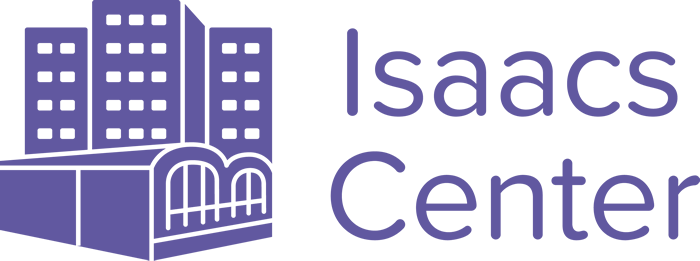Testimony of Stanley M. Isaacs Neighborhood Center
Gregory J. Morris, Executive Director
Fiscal 2019 Executive Budget
May 24, 2018
Thank you for the opportunity to provide testimony on the Mayor’s FY ’19 Executive Budget. I appreciate the leadership of Chair Dromm and Members of the Committee on Finance, as well as the Members of the Committees for Public Housing, Aging, Youth Services and General Welfare, for their commitment to the human services sector.
As a Member of the Human Services Council, LiveOn NY, and United Neighborhood Houses networks, we stand with our colleagues in thanking both the Administration and the City Council for initial strides made in securing the programmatic, financial, and operational resources needed to fully cover costs and meet the contractual obligations of provider organizations holding City human services contracts. We are disappointed to know that the FY ’19 Executive Budget does not contain further sector-wide investment in the areas of indirect cost reimbursement, fringe benefits for provider staff, insurance, occupancy costs, and critical investments historically made through City Council initiatives, including funding for after-school programs, adult literacy and aging services. We’d like to thank the City Council for calling upon the Administration to “review current human services contracts and include provisions that allow providers to request additional funding for rent increases and related insurance costs” and recognizing “human services vendors and their employees [as] a vital arm of the City’s government” in its Response to the Fiscal 2019 Preliminary Budget and Fiscal 2018 Preliminary Mayor’s Management Report.
As the operator of a multi-service non-profit organization that is physically embedded within two public housing developments in Manhattan, and as part of a network of neighborhood based agencies that provide programs in support of 56 public housing developments in New York City, I will focus my testimony on the unique and challenging nature of the relationship between non-profit service providers with leased agreements to operate services within City-owned buildings, and the New York City Public Housing Authority (NYCHA). Specifically, these comments will focus on the value and impact of our current Council-supported service provision to NYCHA residents at these sites, barriers to the general upkeep and maintenance, and the possibility of improved quality of life of residents that would result from increased investments in the “on the ground” operators of these sites.
In close partnership with the City Council, the Stanley M. Isaacs Neighborhood Center provides access to critical programs and services on NYCHA property that include senior services, after school, career readiness and job placement services, mental health services, case management, and legal advocacy. We are located at the Isaacs Houses-Holmes Towers development in upper Manhattan and the James Weldon Johnson Houses in East Harlem. Between the two sites we serve more than 6,000 New Yorkers – the vast majority of whom are residents of public housing.
Similar to other operators at NYCHA developments, the Isaacs Center does not receive targeted funding from NYCHA to operate these sites on an annual basis.1 Any expectations related to general upkeep and maintenance on the facilities including general repair, extermination, etc., are the responsibility of the operator. Similar to any resident, when the operator requires a repair, it must submit a work order, which is entered into a queue. As noted in the Council Finance Division’s Briefing Paper and Report to the Committee on Finance, dated May 16, 2018, “…Aging infrastructure and total estimated capital repair backlog of $25 billion contribute to NYCHA’s many issues.” The report further notes, “As of March 2018, there are over 150,000 open work orders across NYCHA’s portfolio; this is larger than the Authority’s manageable workload of about 90,000 work orders.”
It is clear that a designated funding stream for non-profit organizations with whom NYCHA has existing lease agreement(s), to provide for the general upkeep and maintenance of their sites, is critical to both the betterment of the lives of public housing residents who access services, as well as the health and sustainability of the sector. Investments will reduce the length of time needed to resolve emergency and non-emergency repairs, ensure that community facilities that are used by residents are accessible and well-maintained, and increase the amount of resources that NYCHA will be able to direct to resolve residents’ emergency and non-emergency repairs.
Similarly, capital funds for improvements to sites operated by non-profit organizations with whom NYCHA has existing lease agreement(s) to provide critical repair and/or upgrades to the structures of their facilities (e.g. roofs, HVAC systems, etc.) remains an unaddressed need throughout the network of CBOs, embedded within public housing developments.
I implore Chair Dromm, Chair Ampry-Samuel, and the Members of the Committee on Finance and Public Housing to work with the Mayor’s Office of Management and Budget, as well as organizations like ours, to address critical infrastructure deficiencies, through the FY ’19 Adopted Budget. The Isaacs Center strongly supports the Council’s call to the Administration to provide $2.45 billion in capital funds to NYCHA to address ongoing critical capital needs and invest in housing development on NYCHA land, as noted in the Council’s Response to the Fiscal 2019 Preliminary Budget and Fiscal 2018 Preliminary Mayor’s Management Report.
Multi-service non-profit organizations physically embedded public housing developments play an extraordinary role in the lives of public housing residents. Our services are available at free or significantly reduced cost and are focused on the long-term success of vulnerable New Yorkers – children and families, young adults, immigrants, veterans, and seniors. The future of public housing will hinge on the Authority’s ability to improve its infrastructure while responding to the urgent and emergent needs of its tenants. By strengthening the investment in non-profit organizations with whom NYCHA has existing relationships, the Authority will improve its capacity to create significant and tangible results for its tenants.
Thank you again for the opportunity to provide testimony.
